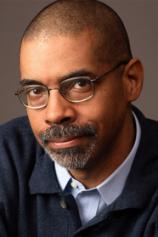Back Channel
Review
Back Channel
It is October 1962. The world is within hours of facing total nuclear destruction in a showdown between Russia and the United States. The Americans have verified through U2 overflights that the Russians have successfully slipped missiles and bombers into Cuba, a mere 100 miles off the coast of Florida. Continued surveillance garners evidence that the freighters hold camouflaged cargo hiding missiles and military vehicles. There are concerns that Russian scientists and troops are aboard as more ships approach. America has set up a blockade that Russia threatens to ignore. The showdown of wills between not only President John F. Kennedy and Premier Nikita Khrushchev, but also between the hawks and doves in each administration, is developing into a deadly game of chicken with cataclysmic consequences in which nobody wins.
BACK CHANNEL is a gripping political thriller about those terrifying days. The dovish members of JFK’s inner circle feel strongly that a back channel negotiation between the President and Khrushchev is worth pursuing. The hawks have had enough of talking and want to make a first strike against Cuba. The doves learn that the KGB Rezident in Washington has the ear of Khrushchev and will talk with someone who JFK trusts so the two world leaders can reach an agreement. Who could convey messages in DC under the noses of the FBI, CIA, KGB, Joint Chiefs of Staff, and other powerful hawks inside the administration? Could someone be found talking directly to JFK without raising suspicion?
"Stephen L. Carter portrays the players on this terrifying world stage, both real and fictional, with such absorbing characterizations that if Netflix or HBO doesn’t turn BACK CHANNEL into a TV miniseries, they’re missing a good bet."
A political science professor with connections to the White House and the intelligence community spots Margo Jensen, a brilliant young black woman in his class who may be a candidate to go deep undercover as a messenger behind the scenes. Margo could be driven to and from the rendezvous by the Secret Service to meet with JFK, a known womanizer, with no more notice than the wink of an eye. Well, Washington was different in those days. These things happened.
There was a back channel negotiation, Carter writes in his Author’s Notes, and except for changes of names, actual dates and locations of meetings at the request of the young lady in question, the historical version holds to real events, using historical fictional license.
The Cuban Missile Crisis is a reality that many of us recall with spine-chilling clarity. Some may remember being directly affected, fleeing from major Eastern cities to relatives in the Midwest. I was pregnant with my third child and wondering what kind of world awaited my family. Early Boomers may recall parents being glued to tiny TV sets or listening to radio news broadcasts. The millions born after 1960 may be familiar with it thanks to a few paragraphs in a world history class.
Here was a handful of level-headed patriots on both sides who, through their efforts in a clandestine back channel negotiation between two world leaders, were responsible for relegating a potential disaster to footnote status. The debate on whether or not Carter has woven a fantastical tale of that event would be moot because, but for them, we came perilously close to joining the dinosaurs.
Now, over 50 years and who can count the number of wars later, the threat of nuclear warfare looms on multiple continents.
The book’s Dr. Niemeyer asks his poly-sci class, “Do you believe that in a perfect world, you would be safe running into a shelter as the Brits did during WWII?” A student responds, “In a perfect world there would be no war.” Professor Niemeyer responds, “And are we intelligent in your perfect world? Yes? We are? Then your answer is not even wrong. As long as there is intelligence, there will be invention. As long as there is invention, there is acquisition. As long as there is acquisition, there will be war.”
Stephen L. Carter portrays the players on this terrifying world stage, both real and fictional, with such absorbing characterizations that if Netflix or HBO doesn’t turn BACK CHANNEL into a TV miniseries, they’re missing a good bet.
Reviewed by Roz Shea on August 1, 2014
Back Channel
- Publication Date: July 29, 2014
- Genres: Fiction, Historical Fiction, Historical Thriller, Suspense, Thriller
- Hardcover: 464 pages
- Publisher: Knopf
- ISBN-10: 0385349602
- ISBN-13: 9780385349604





